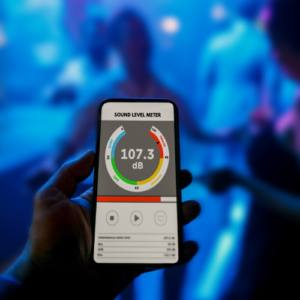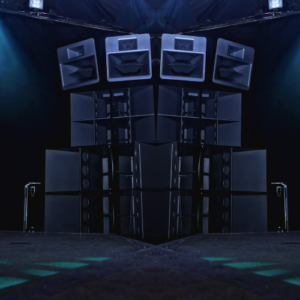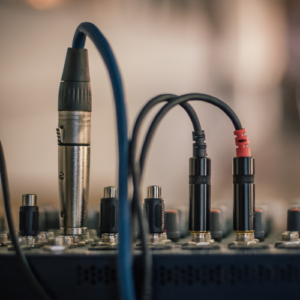5 Ways to Ensure the Best Sound at Events
As a DJ, you should know how to ensure the best sound at your events.
It can make or break the entire experience for your audience. But when it comes to running sound for a live event, there are some unique challenges that DJs face. In this blog post, we’ll dive into some tips and tricks for ensuring you have the best sound at your events. From understanding your sound system’s capabilities to knowing when to bring in extra gear, here are 5 tips that will elevate your game and allow you to be both a DJ AND a sound engineer.
#1. Do your homework before the event
Before you even step foot into the event space, do your homework. Research the size of the venue, the number of attendees, and the type of event if you want to get the best sound. This will give you a sense of what kind of sound system will be necessary to fill the space. It’s always better to err on the side of caution and bring more gear than you think you’ll need. Additionally, doing a site check before the event whenever possible can help you determine any potential sound issues, such as echoes or dead spots. This will allow you to make the necessary adjustments ahead of time.
Anyone who has worked at a historical building, inside a barn or in an older concert hall can understand that the unexpected can certainly happen. It’s always best to be prepared so you can ensure the best sound at your events.
#2. Understand your sound system’s capabilities
Not all sound systems are created equal and there’s no “One size fits all”. It’s important to understand the capabilities and limitations of your specific system. Know its optimal volume range, frequency response, and potential distortion issues. This will help you to avoid damaging your gear or creating poor-quality sound. Additionally, it’s important to know your gear inside and out, so that in the event of any issues, you can troubleshoot quickly and effectively.
Do you find yourself “Redlining” often? This is not something that should happen very much and it may be time to consider a new system to ensure you have the best sound at your events.
3. Be prepared to adjust on the fly
No matter how much preparation you do, there’s always a chance for unexpected issues to arise during an event. It’s important to be prepared to adjust on the fly, whether that means adjusting the volume, EQ, or dealing with feedback. Knowing how to quickly troubleshoot and solve sound problems in real-time is a valuable skill that will help add value to your services.
If you are doing things properly to ensure the best sound at your events, you’ll see it manifested in the room and on the dancefloor. Conversely, if you are not running the sound properly, guests may complain and your clients may also look to you for answers. You don’t want to be the latter.
4. Know when to bring in extra sound
Sometimes the venue or event may require more sound than your system can handle. In these cases, it’s important to know when to bring in extra gear. This could mean bringing in additional speakers, subwoofers, wireless devices, cabling or amplifiers. Knowing when to make this call can make all the difference in a successful event.
If the event requires more gear to cover the space, it is important to charge your client accordingly, For every speaker, subwoofer and accessory needed to perform the job, a relative charge should be added. The best part about this is that it will allow you to charge more based on the reality of the work you are doing. You may just find yourself making more money overall doing fewer events.
5. Be a DJ and a live sound engineer
Finally, being a skilled DJ is great, but being a skilled DJ and sound engineer is even better. You’ll stand out in the industry if you can offer both of these services to clients. Additionally, being able to handle sound production on your own will often result in higher pay for your work.
Many DJs do not realize that if you are bringing in sound as well as DJ gear, you ARE also a sound engineer. We want to make sure you’re doing it properly and also getting paid for that expertise accordingly by your clients. It’s a win-win for all involved.
Final thoughts:
Running the best event sound as a DJ presents unique challenges and requires knowledge and skill. By understanding your sound system’s capabilities, doing your homework before the event, being prepared to adjust on the fly, knowing when to bring in extra sound, and being a skilled DJ plus a sound engineer, you can elevate your game and deliver a top-notch sound experience for your clients and audience.
We hope you found these tips to be of value. We are always here to help at The DJs Guru and DJ Supply Store, offering advice and a trusted source for buying gear online. Contact us with any questions or feel free to comment below (Must be logged in to comment)







